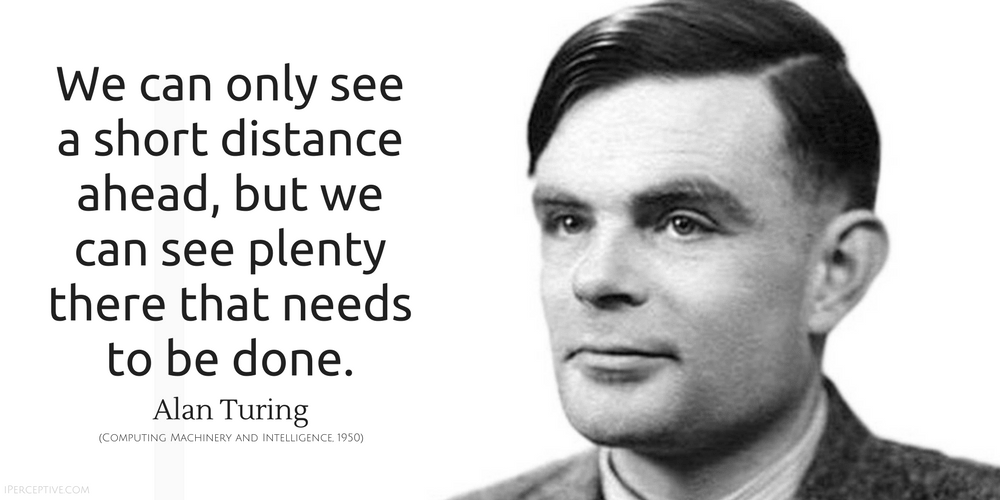Alan Turing Quotes

Science is a differential equation. Religion is a boundary condition.
We can only see a short distance ahead, but we can see plenty there that needs to be done.
A computer would deserve to be called intelligent if it could deceive a human into believing that it was human.
One day ladies will take their computers for walks in the park and tell each other, "My little computer said such a funny thing this morning.
I am not very impressed with theological arguments whatever they may be used to support. Such arguments have often been found unsatisfactory in the past.
Mathematical reasoning may be regarded rather schematically as the exercise of a combination of two facilities, which we may call intuition and ingenuity.
The idea behind digital computers may be explained by saying that these machines are intended to carry out any operations which could be done by a human computer.
Instead of trying to produce a programme to simulate the adult mind, why not rather try to produce one which simulates the child's? If this were then subjected to an appropriate course of education one would obtain the adult brain.
Roughly speaking those who work in connection with the [Automated Computing Engine] will be divided into its masters and its servants. Its masters will plan out instruction tables for it, thinking up deeper and deeper ways of using it. Its servants will feed it with cards as it calls for them. They will put right any parts that go wrong. They will assemble data that it requires. In fact the servants will take the place of limbs. As time goes on the calculator itself will take over the functions both of masters and of servants. The servants will be replaced by mechanical and electrical limbs and sense organs...
The masters are liable to get replaced because as soon as any technique becomes at all stereotyped it becomes possible to devise a set of instruction tables which will enable the electronic computer to do it for itself. It may happen however that the masters will refuse to do this.
They may be unwilling to let their jobs be stolen from them in this way. In that case they would surround the whole of their work with mystery and make excuses, couched in well chosen gibberish, whenever any dangerous suggestions were made. I think that a reaction of this kind is a very real danger.

